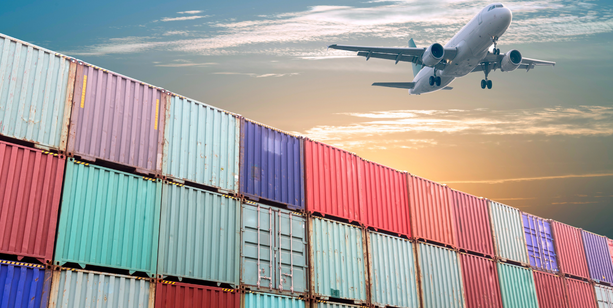
Singapore has long been a global trade hub, thanks to its strategic location, world-class port facilities, and efficient logistics infrastructure. With businesses increasingly relying on international freight services to import and export goods, understanding the nuances of international shipping in Singapore is crucial. Whether you are a business owner, logistics professional, or someone looking to transport goods overseas, this guide will walk you through everything you need to know about international freight in Singapore.
Why Singapore is a Leading International Freight Hub
Singapore’s reputation as a global shipping powerhouse is well-earned. Here are some key reasons why Singapore stands out in international freight services:
1. Strategic Location
Situated at the crossroads of major shipping lanes, Singapore serves as a vital gateway between Asia, Europe, and the Americas. Its location allows for shorter transit times and cost-effective shipping routes.
2. World-Class Port Facilities
The Port of Singapore is one of the busiest and most efficient ports in the world, handling millions of containers annually. It is equipped with state-of-the-art technology and offers seamless cargo handling, ensuring fast and reliable shipment processing.
3. Advanced Logistics Infrastructure
Singapore boasts a well-developed logistics ecosystem, including extensive warehousing, freight forwarding, and distribution networks. Companies benefit from streamlined customs procedures and advanced tracking systems.
4. Business-Friendly Policies
Singapore’s pro-business environment, transparent regulations, and free trade agreements (FTAs) with multiple countries make it easier for companies to engage in international trade.
Types of International Freight Services in Singapore
When shipping goods internationally, businesses have several freight options to choose from, depending on their requirements.
1. Air Freight
Air freight is the fastest way to transport goods internationally. Singapore Changi Airport is a major air cargo hub, handling thousands of flights and cargo shipments daily. Air freight is ideal for high-value, time-sensitive, or perishable goods.
Pros:
- Fastest shipping option
- Reliable and secure
- Ideal for urgent shipments
Cons:
- More expensive than sea freight
- Limited capacity for bulky goods
2. Sea Freight
Sea freight is the most cost-effective solution for bulk cargo and large shipments. Singapore’s extensive port network connects to over 600 ports worldwide, making it an excellent choice for international trade.
Pros:
- Economical for large shipments
- Suitable for a wide range of goods
- Environmentally friendly compared to air freight
Cons:
- Longer transit times
- Requires careful planning for inventory management
3. Land Freight
For shipments within Southeast Asia, land freight via trucks and rail can be a viable option. Singapore has well-established land transportation links with Malaysia and other neighboring countries.
Pros:
- Lower costs for regional shipping
- Flexible and convenient
Cons:
- Limited to nearby destinations
- Possible delays due to customs and border checks
Key Considerations When Choosing an International Freight Service
Selecting the right freight service depends on several factors, including cost, speed, type of goods, and regulatory requirements. Here are some key considerations:
1. Nature of Goods
Fragile, perishable, or hazardous goods require specialized handling. Understanding your cargo’s requirements will help you choose the best freight option.
2. Shipping Costs
Freight charges depend on factors such as weight, volume, distance, and mode of transport. Businesses should compare quotes from multiple freight service providers to get the best rates.
3. Transit Time
Urgency plays a crucial role in determining the best shipping method. If time is a priority, air freight is the best option, whereas sea freight is ideal for non-urgent shipments.
4. Customs and Regulatory Compliance
International shipping involves dealing with customs regulations, taxes, and documentation. Working with an experienced freight forwarder can ensure smooth customs clearance and avoid unnecessary delays.
5. Reliability and Tracking
Choosing a logistics partner with a strong track record and real-time tracking capabilities helps ensure your goods arrive safely and on time.
How to Choose the Right Freight Forwarder in Singapore
A reliable freight forwarder can simplify international shipping by handling logistics, documentation, and customs clearance. Here’s what to look for when choosing a freight forwarder in Singapore:
- Experience and Expertise: Look for a company with a proven track record in handling international shipments.
- Global Network: A freight forwarder with strong international connections can offer better shipping routes and competitive pricing.
- Customer Support: Reliable customer service ensures timely updates and quick resolution of any shipping issues.
- Technology and Tracking: Choose a company that offers real-time shipment tracking and digital documentation to improve efficiency.
- Cost Transparency: Ensure there are no hidden charges and that the pricing structure is clear and competitive.
Conclusion
International freight plays a crucial role in Singapore’s economy, facilitating global trade and commerce. Whether you opt for air, sea, or land freight, understanding the available options and key considerations can help you make informed decisions for your shipping needs. By partnering with a reliable freight forwarder, businesses can streamline logistics, reduce costs, and ensure timely delivery of goods across international markets.
If you’re looking for expert international freight solutions in Singapore, companies like Transglobal provide comprehensive and efficient shipping services tailored to your needs. From cargo handling to customs clearance, a trusted logistics partner can make all the difference in your global supply chain.

